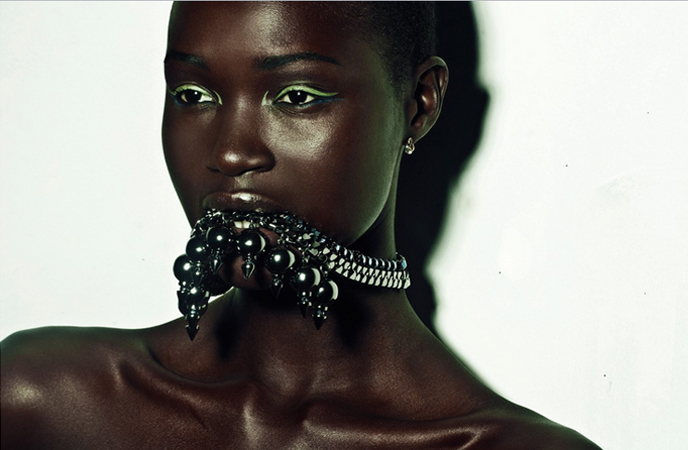I am weary when I receive compliments here because they are usually precursors for the inevitable question that is usually the first thing most Germans ask me, often before they ask my name. “Where are you from?”
One time this was asked after an old lady I bumped into at the grocery store spent five minutes going on about how beautiful I was and how she never in her life saw a beautiful black person. My reverence for old people was tested because although she was charming and meant well, her hands were all over me. It was summer so I was wearing a halter dress which gave her a lot of access to my skin. She examined my hair with her fingers and held my arm up to the light applauding its luminosity. One part of me was somewhat impressed by her familiarity. Germans can seem formal and stand-offish to me and never before had someone in Berlin took the liberty of touching me within 5 second of meeting me.
Then she asked me where I was from.
– The USA.
– No but where are you REALLY from?
– I was born in Guyana, South America.
– No No. Where was your grandfather born?
– He was born in Guyana
– Black people are not from Guyana. OK OK maybe in the last 200 years. Where in Africa are your people from?
– I don’t know.
– Maybe you can find out…
There are some things that are not nearly as simple as people would like them to be. Where you are from does is not always determined by what you look like except in the German imagination. As a descendant of African slaves, I am not sure it makes sense to assume that my ancestors were from one part of Africa. I know for a fact that a few of my ancestors were European and indigenous to Guyana but can’t break down the race of my family tree with the exactness and surety that most Germans can. This lack of heritage and continuity is often unimaginable to older Germans who for some reason seem to have an affinity for engaging me in conversation.
When I came to Berlin, it became clear to me that race is tied to nationality for most Germans. Germany is not historically a land of immigration like the United States so the conversation about these issues is somewhat new. I have had to let go of being offended in order to live here. Although more people of color are moving to Berlin, it is a pretty white space. I often describe it as Brooklyn in the 80’s without the black people. When I sit at the playground to watch my son play, kids inevitably come up to me to examine the newness of my skin and hair. My mom, who lives in New York went walking around by herself while visiting me. She came back perplexed. “There are no black people here” she said. “How can you live here?”
I live here by developing a community, a network of enlightened, amazing people that act as my sunshine during the dreary six month winters. But being a constant spectacle is difficult. I often run up against German assumptions of me that come from lack of understanding and access to people of color.
After that old lady at the market finished speculating about my African Roots, she turned her focus onto Germans. “Don’t go too far into there.” she said, pointing to the east. “Some people are stupid. They believe all kinds of crazy things. If anyone says something bad to you, ignore them. You are beautiful.” Then she gave me the warmest smile.
It was clear that she loved me, if only for a moment but she did not trust that her countrymen would feel the same.
Image of Atuai Deng credited to LMC Worldwide


